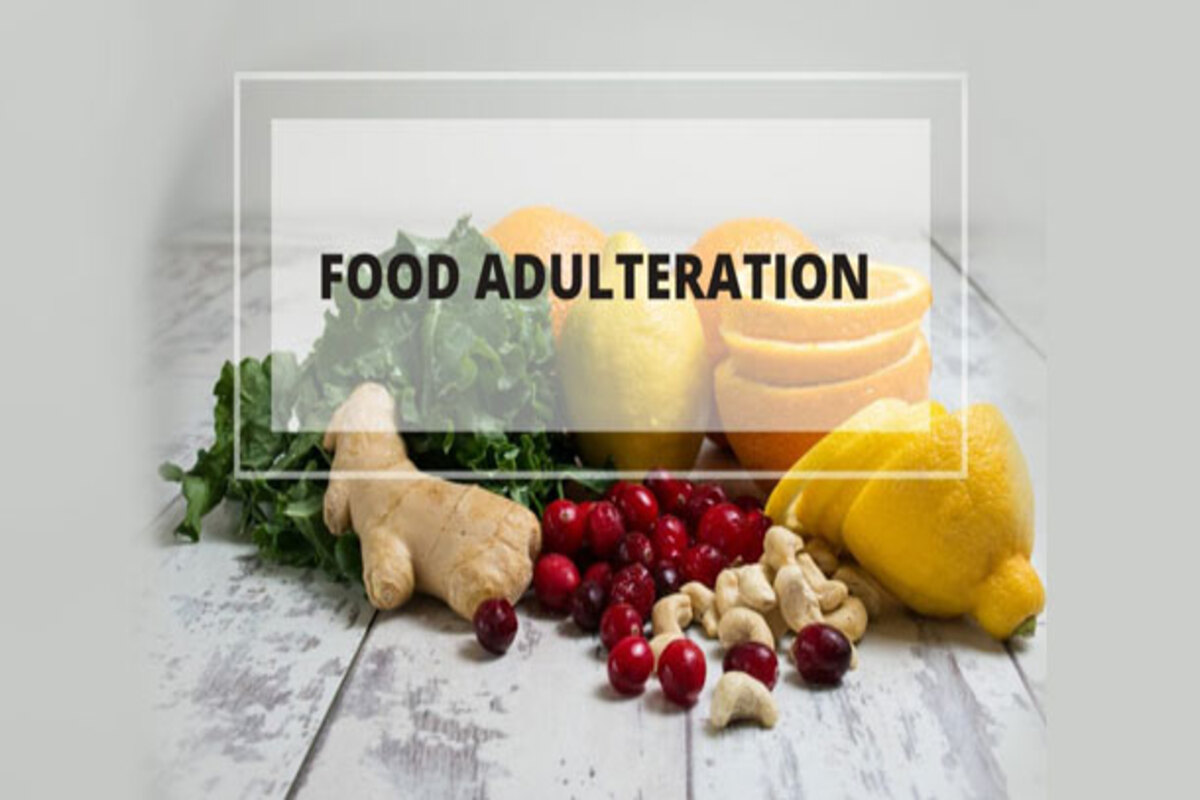Food is essential for the sustenance of life. We all eat food and gain energy for different metabolic activities. All living organisms need food for growth, work, repair, and maintaining life processes.
There are different types of food available today in the market, and on a daily basis, we all depend on various food sources, including vegetables, fruits, cereals, pulses, legumes, etc.
Advertisement
As we buy fresh veggies and other groceries, we might have come across small pebbles in cereals and grains, darkly stained vegetables like cabbage, broccoli, fruits, dark red meat, and a lot more. This is all because of the Adulteration of food.
What is food Adulteration?
Food Adulteration can be defined as the practice of adulterating food or contamination of food materials by adding a few substances, which are collectively called adulterants.
Adulteration or contamination of natural food products is one of the major challenges in today’s society. Despite various actions and penalties, the practice of adding adulterants is quite common in developing countries. There are various methods used for adulterating natural products.
In every product there is adulteration. Starting from our daily groceries, it moves on to our life-saving medicines. The sinners have not spared even infants’ milk products.
Adulterated food is food that meets any of these criteria
- Contains a poisonous or deleterious substance. For example, if a batch of Brie cheese is found to contain Listeria, it’s considered adulterated. The only exemptions are if the adulteration is naturally occurring, or if levels are so low they don’t pose a threat to public health
- Contains an added poisonous or added deleterious substance. The same restrictions apply here
- Exists in a container that is composed, in part or in whole, of a poisonous or deleterious substance. This may be intentional or unintentional
- Bears any chemical or pesticide residue that is unsafe. Any chemicals or pesticides that are safe for human contact and/or consumption are not considered adulterated
Adulterated food is dangerous because it may be toxic and can affect health and it could deprive nutrients essential for the proper growth and development of a human being.
The worst part is some adulterated food even causes cancer, the most life-threatening disease. Also, in many cases which I have come across, many pregnant women who consumed such adulterated food ended up with miscarriages because of poor fetus growth and in some extreme cases, the women died while delivering babies.
Why is Food Adulteration done?
The process of contaminating food or adding to the food components is a common phenomenon in developing countries.
For instance: Milk can be diluted by adding water to increase its quantity and starch powder is often added to increase its solid content.
Listed below are the main reasons for adulterating food products:
- Practiced as a part of the business strategy.
- An imitation of some other food substance.
- Lack of knowledge of proper food consumption.
- To increase the quantity of food production and sales.
- Increased food demand for a rapidly growing population.
- To make maximum profit from food items by fewer investments.
How can Adulteration be Prevented?
Adulteration of food is a menace to society and the perpetrators cannot be let off lightly.
The central government, on its part, is trying everything possible to control this “crime”. In India, the ministry of health and family welfare is completely responsible for providing safe food to the citizens. The Prevention of Food Adulteration Act, 1954, has laid down guidelines to provide pure and wholesome foods to consumers. The Act was last amended in 1986 to make punishments more stringent and to empower consumers further. But the government is planning to enforce harsher punishment now.
The FSSAI has issued the draft amendments to the Food Safety and Standards (FSS) Act, which was passed in 2006 but the regulations were notified only in 2011. Among the key amendments, the FSSAI has proposed to include a new section to crack down on food adulteration.
People need to be very cautious when they buy products from stores and malls. They should check for standards like ISI standard mark, Agmark for quality products, FSSAI standard mark, date of packing and date of expiry, etc. If none of the prescribed standard marks is there, then they should totally avoid buying such products.
Every year, the 7th of April is celebrated as World Health Day globally, and as per the reports, WHO aims to bring a general awareness about the adulterations of food products, motivate and inspire everybody to have a healthy, balanced diet.











